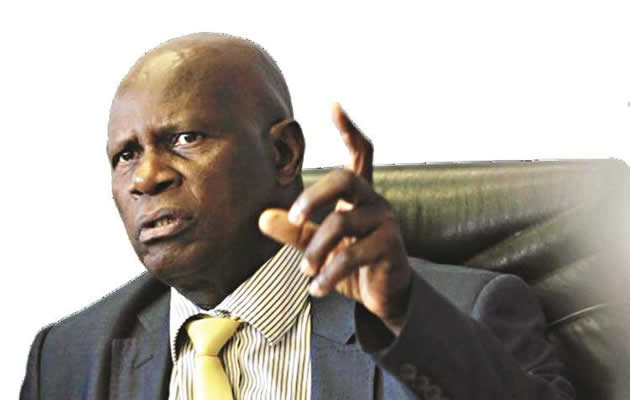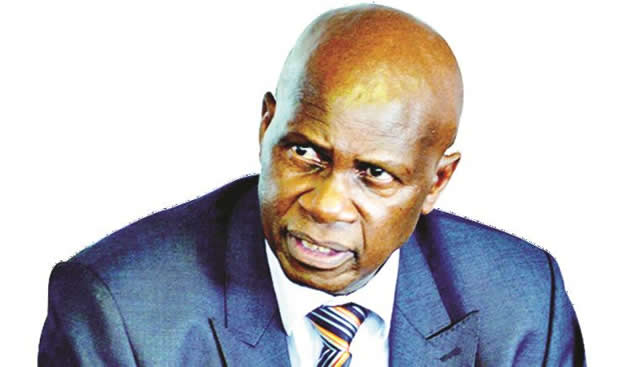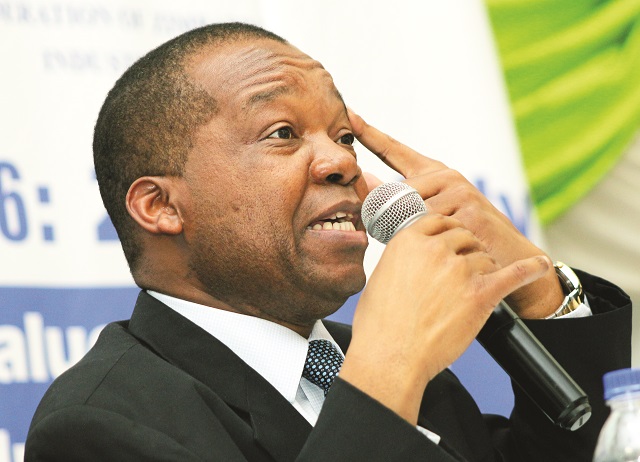EDITORIAL COMMENT: Budget shows commitment to improving people’s lives

REVITALISING the productive sectors of the economy and containing costs dominated Finance Minister Patrick Chinamasa’s message as he presented the 2017 national budget statement in Parliament on Thursday.
Minister Chinamasa proposed a $4.1 billion budget for 2017 in which the economy is projected to grow by a moderate 1.7 percent from a revised 0,6 estimated in 2016 with inflation projected at 1,1 percent from -1,5 this year.
The minister urged fiscal discipline and structural reform as key guidelines to overall economic recovery. Experience from previous budgets has shown that the country was spending more resources that it could generate thereby creating a fiscal deficit. So far in 2016 Treasury has reported an excess expenditure of about $600 million as of October. A similar trend might haunt the country in the coming fiscal year in view of suppressed projected revenue of $3.7 billion against $4.1 expenditure. The given figures already indicate the country would cross into 2017 saddled with a $1.1 billion budget deficit. The absence of a vibrant productive sector is evident in the high import bill, which remains unsustainable at $5.35 billion in 2016 against exports of $3.365 billion. The continued influx of cheap imports, loss of jobs and dwindling revenue collections, are symptoms of this deep-seated problem.
This trend is not sustainable hence the pragmatic measures proposed by Minister Chinamasa should be given serious consideration if the country is to move forward. We support the minister’s proposals to boost key productive sectors such as manufacturing, agriculture, mining, tourism and small to medium enterprises. Revitalising these sectors has a quick-win effect given their downstream impact on the overall performance of the economy.
We applaud the move to increase the list of products under Statutory Instrument 64 of 2016, a positive piece of legislation that controls importation of locally available products. Within six months after its promulgation, the law has spurred capacity utilisation by an average 13 percent to 47 percent. A further extension of the waiver on the 15 percent platinum export tax to December 2017, the five-year tax exemption package on special economic zones as well as the freezing of fees, benefits and salary increases by public entities including power and water charges, would not only cushion industry and ordinary consumers from harsh economic environment but also allow room for quick stabilisation and growth.
We concur with Minister Chinamasa on the need to resuscitate the steel industry and the defunct Ziscosteel, which has great potential to steer economic growth and job creation. We, however, urge the Government to complement these proposals with a strong strategy of turning around operations of loss making public entities such as the National Railways of Zimbabwe and the Cold Storage Company by ensuring that they contribute more to the economy as opposed to draining its resources.
We urge the private sector, finance institutions and the executives in public entities to also play their part and support the Government in driving economic growth.
Like Minister Chinamasa said, revamping the economy requires collective commitment and prudent adherence to principles of good corporate governance and shunning corruption at both public and private sectors.
“The success of the proposed measures can only be meaningfully realised through the collective responsibility of all stakeholders, through sustained implementation, anchored by policy consistency, credibility, predictability and coherence, which by and large we have now been able to achieve through sustained effort,” said Minister Chinamasa.
We also applaud the proposal to review downwards the presumptive tax and relaxation of payment period as this would spur growth of small to medium enterprises, which for a long time have endured a tough operational environment and restrictive legislation.
We feel Minister Chinamasa has succeeded in revealing the constrained state of the economy as evidenced by minimal allocations to certain capital projects, ministries and state departments. However, he demonstrated the Government’s sensitivity to the need to avail support for social sectors.
Higher allocations on education ($800mln), health (481mln) and public service (193mln), provision for civil servants accommodation scheme at $50 monthly contributions and maintenance of the $50 000 constituency development fund, exhibit the Government’s commitment to improving quality public service provision. We, however, feel the five percent tax on all voice calls would increase the load on the already burdened consumer.











Comments